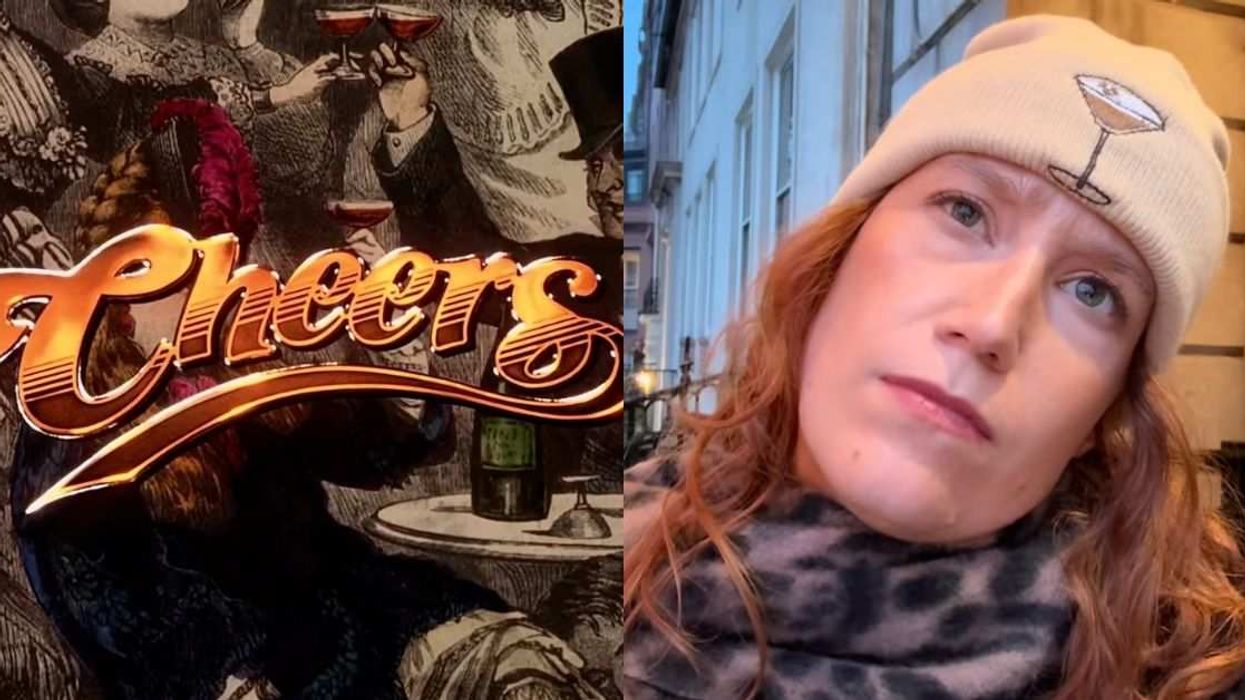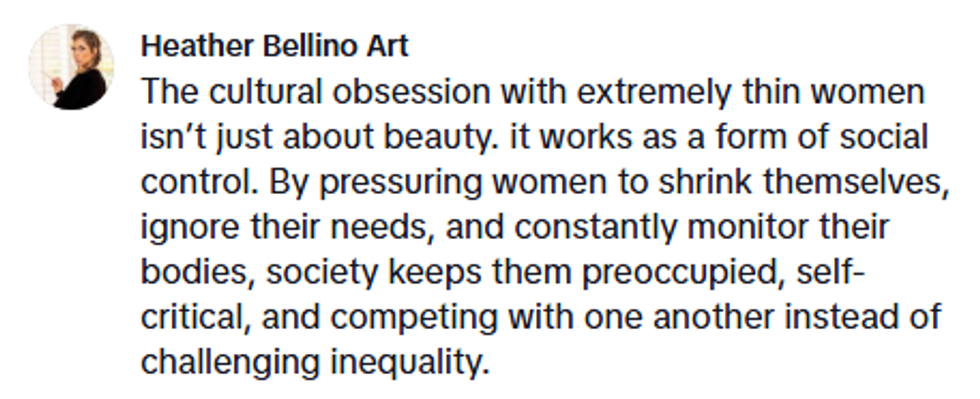An NHS worker has spoken of her terror when she was convinced the hospital doctors were trying to kill her after a "stress headache" turned out to be a rare brain bug.
Katie Fowler suffered a persistent headache in August last year. She didn't think too much about it, especially when doctors reassured her that her high pressure job as a hospital discharge coordinator had most likely triggered it.
But, when she woke in the early hours of the morning and began projectile vomiting she was taken to St. George's Hospital in London, where she was placed in an induced coma and diagnosed with encephalitis.
Encephalitis is a rare but serious inflammation of the brain, usually occurring when the immune system attacks itself in error.

She soon began experiencing hallucinations.
“I'd a see fire coming through the windows, which obviously wasn't real. It was horrifying," Fowler said.
“My hallucinations felt so real that no one could convince me otherwise. Intensive care at night is a scary place to be anyway, with all the machines beeping and doctors coming in and out."
“And I became convinced that the medics were trying to kill me. I thought they were secretly taking my blood and I'd see shadows of them looming."

“I'd cry hysterically whenever my family visited. When it was time for them to leave, I'd beg not to be left alone," she continued.
Fowler is one of up to 6,000 people in the UK every year to be diagnosed with the condition, according to the charity Encephalitis Society. Symptoms include drowsiness, loss of consciousness, aversion to bright lights, inability to speak, uncharacteristic behavior, hallucinations, sleep disturbance and neck stiffness.
Although she has ostensibly recovered, she wants people to know about the after-effects of the condition.
“Just because I've left hospital doesn't mean this is over for me," she said.
“I still struggle with things like concentration, reading, writing and holding a conversation."
“I know I'm very lucky to have got through this without a more severe brain injury, but it's frustrating that people assume that because I look fine, I am."
Fowler's life changed forever after a day out to an aquarium in August last year.

Arriving home that evening, she developed a headache but thought little of it. She assumed it had been triggered by being under bright lights all day.
Still feeling unwell when she woke up the next morning, she called in sick to work.
“I was off for four days in total, but ended up feeling guilty and so went back in," she said.
“I still had a headache, but I was telling myself, 'You work for the NHS, you need to go back and help other people.'"

“I tried to make it through the day, but felt so unwell. The lights and noise were unbearable. I burst into tears and was sent home," she continued.
Fowler went to the GP, where she was told it was probably a simple tension headache.
But, by the following Sunday things took a turn for the worse and she ended up in her local hospital.
“I'd been taking painkillers, but they weren't making much difference," she said.
“I went to A&E, where doctors took some blood and did a CT scan, but everything came back normal."
“I was told again that it was probably just a tension headache and they asked if I had a stressful job."

“I knew it was more than that – I just didn't know what. Besides, I didn't feel like I could argue with a consultant. Who was I to question medical advice?" she said.
That same day, Fowler also began behaving erratically, switching between laughing and sobbing and struggling to follow the thread of conversation when her family spoke to her.
She also developed a strange pins and needles sensation in her right-hand side, starting in her foot and spreading up to her fingers.

But things came to a head 72 hours later, in the early hours of the morning.
“I woke up in such a haze – it felt like I'd been drugged. I was projectile vomiting and so delirious I couldn't even speak to phone for help," she said.
“I managed to bang around enough to alert my grandad, who I lived with at the time."
“He took one look at me and knew something was very wrong. I remember him handing me some water and I couldn't even grip the glass."
Paramedics were called, and Fowler was taken to St. George's Hospital.
“In the ambulance, I vomited with so much force that it hit the back of the door," she said.

“The only words I could say were, 'Mum' and 'please,'" she said.
“Once I got to hospital, I couldn't stay still. It was like I was possessed. I felt like ants were crawling all over my body."
Her erratic behavior meant doctors had to place Fowler in an induced coma, to enable them to safely perform procedures like an MRI scan and a lumbar puncture, which tests the fluid surrounding the brain and spinal cord.
The results revealed that she had encephalitis.
While Fowler's memory of the weeks that followed is hazy, she does know that she was comatose for five days.
And, her terrifying hallucinations started.

After two weeks, Fowler was discharged.
Thankfully, she did not sustain any severe brain damage. Some of her cognitive abilities, like reading, writing and concentrating, had been impacted.
“I'd be talking or writing something down and would forget the word I needed," she explained.
“I also had huge problems with concentration."
It was especially frustrating for her.
“I'm a very stubborn person, so it was frustrating not to be able to say and do the things I wanted. Still, I knew I had to focus on getting better," she added.
Fowler says the Encephalitis Society was her lifeline and continues to support her to this day.
“The people there were amazing. They sent my family and I so much information about encephalitis and what it actually is and have been there for me ever since," she said.
“Through them, I've read stories of other people who have been through encephalitis and they have shown me I'm not alone.
“People say they understand – but they don't. Not unless they've been through it too. I feel frustrated and misunderstood enough and I'm one of the lucky ones. My heart breaks for people who've sustained serious brain injuries as a result of this horrible condition."
Fowler was eventually able to return to work in February this year.
“Basically, nothing has been normal for me since August," she explained.
“Even work has been impacted, as I am classed as high-risk, so can't work in the same way."
But she is keen both to thank Encephalitis Society for their help and to raise awareness of the condition and its long term impact on survivors.
“It's scary how few people have heard of encephalitis. Even some doctors won't encounter a case in their entire career, but I am determined to do what I can to raise awareness," she said.
“I used to be on the go all the time, constantly rushing around at 100 miles per hour," she said.
“But now I know I have to live a calm life, or else I'll get overwhelmed and exhausted. It's not about pushing myself anymore, it's about being content with what I can do."
For information, visit www.encephalitis.info













 @RichardLaub4/X
@RichardLaub4/X @RonFilipkowski/X
@RonFilipkowski/X
 @fortunate_fiasco/Instagram
@fortunate_fiasco/Instagram @baadbrad/Instagram
@baadbrad/Instagram @starbaksh/Instagram
@starbaksh/Instagram @angelcartel/Instagram
@angelcartel/Instagram @tamoderos/Instagram
@tamoderos/Instagram @rinabekiri/Instagram
@rinabekiri/Instagram @grace.s.hamilton/Instagram
@grace.s.hamilton/Instagram @robbietomkins/Instagram
@robbietomkins/Instagram @mereyahncage/Instagram
@mereyahncage/Instagram @aristochick/Instagram
@aristochick/Instagram @rrmrrmrrmrrmrrm/Instagram
@rrmrrmrrmrrmrrm/Instagram @drewguy88/Instagram
@drewguy88/Instagram @annacollins5172024/Instagram
@annacollins5172024/Instagram @lvndrbeauty/Instagram
@lvndrbeauty/Instagram @dinalohan/Instagram
@dinalohan/Instagram
 @jameelajamil/TikTok
@jameelajamil/TikTok @jameelajamil/TikTok
@jameelajamil/TikTok @jameelajamil/TikTok
@jameelajamil/TikTok @jameelajamil/TikTok
@jameelajamil/TikTok @jameelajamil/TikTok
@jameelajamil/TikTok @jameelajamil/TikTok
@jameelajamil/TikTok @jameelajamil/TikTok
@jameelajamil/TikTok @jameelajamil/TikTok
@jameelajamil/TikTok @jameelajamil/TikTok
@jameelajamil/TikTok @jameelajamil/TikTok
@jameelajamil/TikTok